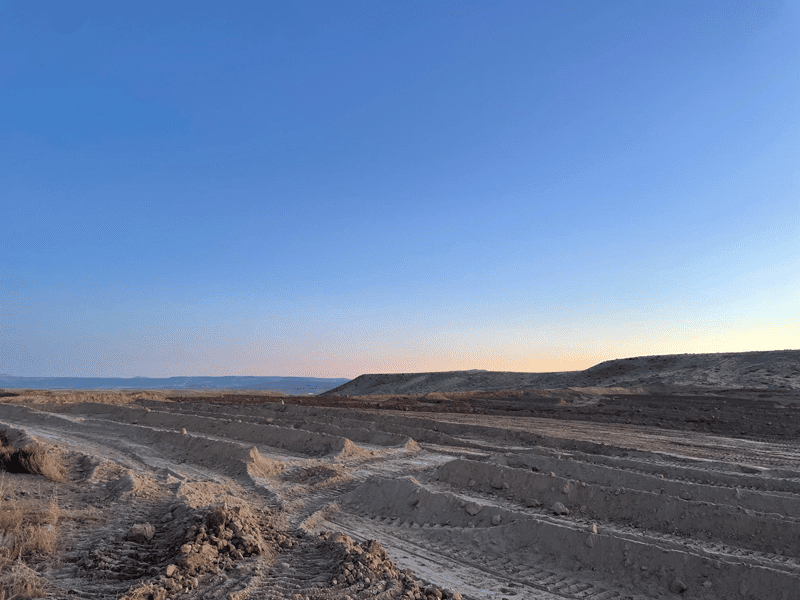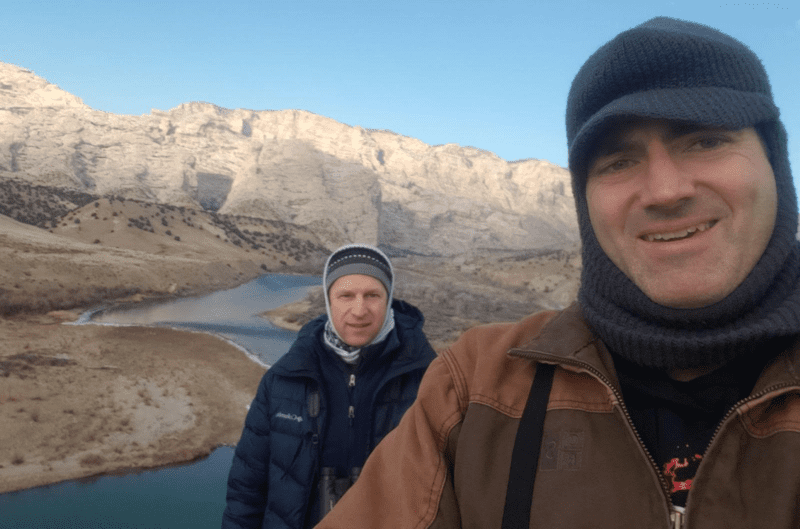There are 7 Essential Skills for Effective Principled Independent Contractors. We call them The 7 E.P.I.C. Skills and they’ll give you staying power or the power to pivot from where you are to where you want to be, whether you’re a land professional, a field/lease operator or a service company serving the oil and gas industry:
- Negotiation
- Technical/Title/Trade
- Leadership
- Networking
- Communication
- Project Management
- Mastermind/Peer-Advisory Groups
These skills were learned and refined over 18 years as an independent contractor and petroleum landman – and they can be learned.
Negotiation
I start with negotiating because that’s where I started in the industry, and especially for a new independent land professional or contractor, when learning to negotiate contracts, it’s a critical skill to learn.
The art of the deal comes very naturally to some people, while to others it is an acquired
skill and taste. Although many would not call me an artist, or think that what I do as work is very creative, it is. As a landman, we create contract rights where they didn’t exist before and going from no contract rights to a signed deal is very much a work of art and passion. It involves listening to understand, capturing the message and relaying it effectively, and working with both sides of the deal to find that thin line where an agreement can be reached and a brand-new baby deal is born. When the contract is signed and the asset owner is paid, you can look upon it with humble pride and say, “Something new was created here.” And then you can hold your head up with dignity and agree that it was a privilege to participate.
As with leasing, the skills of negotiating, mediating or brokering a deal can be applied to
many different areas and aspects of the land professional or other independent contractor’s career: surface rights for location sites, right-of-way agreements, settling crop or property damage payments, and even the contracts used to get work with other general contractors and subcontractors, just to name a few.
Learning to negotiate professionally can help you in your personal life, too, to listen for understanding, express what you have to offer, develop relationships, and find ways to agree and to accomplish objectives without using strong-arm tactics, manipulation, coercion or fraud. The skill of a negotiator can be learned, developed, honed and refined until you become a Master Negotiator.

Technical/Title/Trade
Then, there are technical skills, title examination and analysis, and trade skills. In the U.S., 48 of the 50 states allow for the separation of mineral rights from surface rights. What most real estate owners and renters don’t realize is that there are also mineral rights with the land; real property mineral rights that very rarely, unless through a long family line of ownership or careful investing and preservation, will still be together with the surface rights.
A sometimes uncomfortable but true fact is that most states also give these mineral rights
priority over the surface rights because of the existing history of when those mineral rights were retained during the sale of the surface real estate. To get to the mineral rights, though, somewhere, somehow you have to go through the surface. So, we need to learn to work together.
The process of looking at the property records and determining who owns which rights to the
property is what we call “title.” Title denotes title research and title examination. Sometimes we distinguish the different kinds of title research as follows:
Cursory, meaning a quick look.
Mineral, focusing on the mineral rights, leases, production, and associated other rights that can be given, bought, sold, traded, etc.
Surface rights, where real estate is concerned for land development, production facilities or right-of-way/easement access.
Lease take-off, to determine most recent leasing activity and if there are likely any available interests that could be acquired.
Abstract, just collecting copies (whether physical or digital) that can be read and interpreted by a skilled land professional, company staff or title attorney.
As with the land professional, the skill of a technician/title analyst/trade professional can be learned, developed, honed and refined until you become a Master Technician in your field of choice. Are you a technician in this sense, doing the technical work, the hands-on, boots-on-the-ground work that gets the job done? Or are you more of a leader of those who do?
Leadership
There are many different styles of leadership. One that I have easily identified with and connected with is the available and accessible leader, who asks questions and makes space for you to figure things out as you take action and move forward. My hands-on style of learning is likely due to the teaching I received from my dad, church and scout leaders, as they nurtured a very action-based education process.
That was certainly the case for the first crew chief in land work, John Whiteside. He wasn’t very formal in training or coaching processes, systems or checklists. He would explain the goal of a project or assignment, and usually, it was something like, “Try to lease these mineral owners.” Or, “Research title in this specific area and create an ownership report.” Then he’d ask if we had questions, and let us know that he was available when we did. In response to questions, he’d teach and explain, guide and enable us to take the next steps in getting to the goal of the assignment. He was very kind and patient about teaching based on action-oriented questions.
In that way, he showed me by his example of how to lead others and be available to help them. He also gave me the opportunities to practice my own leadership skills by teaching others how to negotiate and run title. Under his guidance, I learned how to ask questions, and be available to answer questions, and to brainstorm with team members on their projects.
Whiteside also gave me an introduction to leadership and relationship development through the
Dale Carnegie classic, How to Win Friends and Influence People. The principles there have paved the way and been foundational to my development as a landman and a leader. I revisit them periodically and often learn something new.
Another guiding principle of leadership that I learned from Whiteside was his openness to learning something new each day. When he did, he shared it with us and said, “Ya learn something new every day.”
As a new team leader, Whiteside gave me the opportunity to lead others in negotiating surface use and right-of-way agreements, as well as leading others to conduct title research. With my wise wife’s insight, I was able to learn that leading a team and managing their projects was work too, even if I wasn’t actively taking on the individual tasks of negotiating or researching.
Ryan Fairbanks, RPL and Assistant Project Manager ©2023 Land Runner, Inc.
E.P.I.C. Skills Mastermind
www.LandmanMastermind.com
Part II – Networking and Communication – in the next issue.
Featured photo: Ryan Fairbanks (background) at the Audubon annual bird count on the Green River/Dinosaur National Monument in Utah on New Year’s Day 2024, with Jared Bigler (foreground), owner of Frontier Resources, an environmental consulting firm for biological, natural and cultural resources.
Ryan Fairbanks is a Registered Professional Landman (RPL) with AAPL who helps independent contractors explore and expand their knowledge, skills and habits, so that they can prepare for and walk through their next career pivot. He does this through EPIC Skill coaching, mastermind groups, the EPIC Skills Network, and the Landman Pivot podcast, helping his clients develop their skills and mindset.
Fairbanks lives in rural Utah, nestled in the Rocky Mountains, where he has been a petroleum landman for 18 years. He works as an assistant project manager, an independent contractor landman, and an independent author and entrepreneur. He’s an amateur triathlete and enjoys cycling (50 and 100 mile events), hiking and pickleball with his family, friends and clients.
Fairbanks has served a three-year term on the AAPL Education Committee and one year on the Utah Association of Petroleum Landmen (UAPL) Leadership Team. He is also a member of the Utah Royalty Owners Association.
Fairbanks speaks about Professional Development, Negotiating, Leadership Development, Networking, Communication, Project Management, Land Skills, and Taking Your Purpose to Your Work. He likes to connect on LinkedIn. Ryan Fairbanks, RPL. www.landmanmastermind.com.
Oil and gas operations are commonly found in remote locations far from company headquarters. Now, it's possible to monitor pump operations, collate and analyze seismic data, and track employees around the world from almost anywhere. Whether employees are in the office or in the field, the internet and related applications enable a greater multidirectional flow of information – and control – than ever before.




